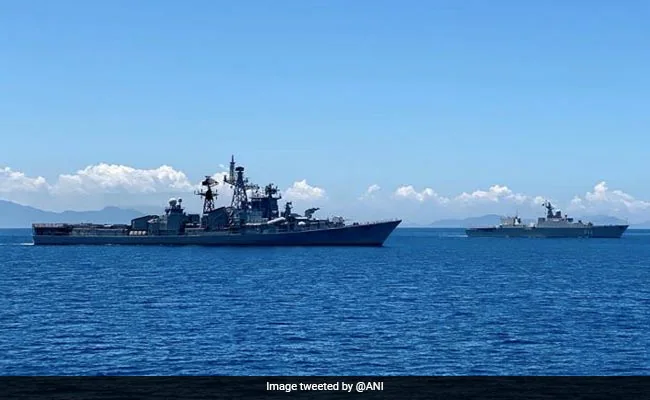Referring to the recent incident of water cannon being used at Philippines supply boat by Chinese coast guard ship, India on Friday said that issues in the South China Sea need to be resolved peacefully while urging China and the Philippines to adhere to international laws.
“Let me emphasize where we are on the South China Sea developments. We’ve always felt that the issues need to be resolved, disputes peacefully, and the rules-based order, and we would certainly urge parties to follow that as well as ensure that no such incidents do not happen,” Ministry of External Affairs Spokesperson Arindam Bagchi said when asked whether the tension between China and Philippinesis concerning India.
He further stated, “I mentioned specifically that I have already made a comment regarding the need to adhere to international law. I think I’d leave it at that.”
The “excessive and offensive” use of a water cannon by Chinese ship to block a Filipino supply boat occured at Second Thomas Shoal in the South China Sea.
He reiterated that India has a long-standing position on the disputes regarding South China Sea as parties need to adhere to international laws.
“We have also underlined the need for peaceful settlement of disputes,” he added.
On August 5, the Philippines accused Chinese Coast Guard ships of firing water cannons and making dangerous manoeuvres at its ships in the South China Sea.
“The Philippine Coast Guard (PCG) strongly condemns the China Coast Guard’s (CCG) dangerous manoeuvres and illegal use of water cannons against PCG vessels,” the PCG wrote in a statement shared on its official Facebook account Saturday.
PCG vessels were escorting ships carrying supplies to military troops stationed in Ayungin Shoal, also known as Second Thomas Shoal, in the Spratly Islands chain, known in China as the Nansha Islands.
China’s action received backlash from different countries. By Sunday, Washington, Manila’s principal ally, had denounced China’s actions and reaffirmed that it will uphold its end of the mutual defence pact with the Philippines.
Australian, Japanese, and German officials referred to China’s moves as “dangerous” and “destabilising.”






